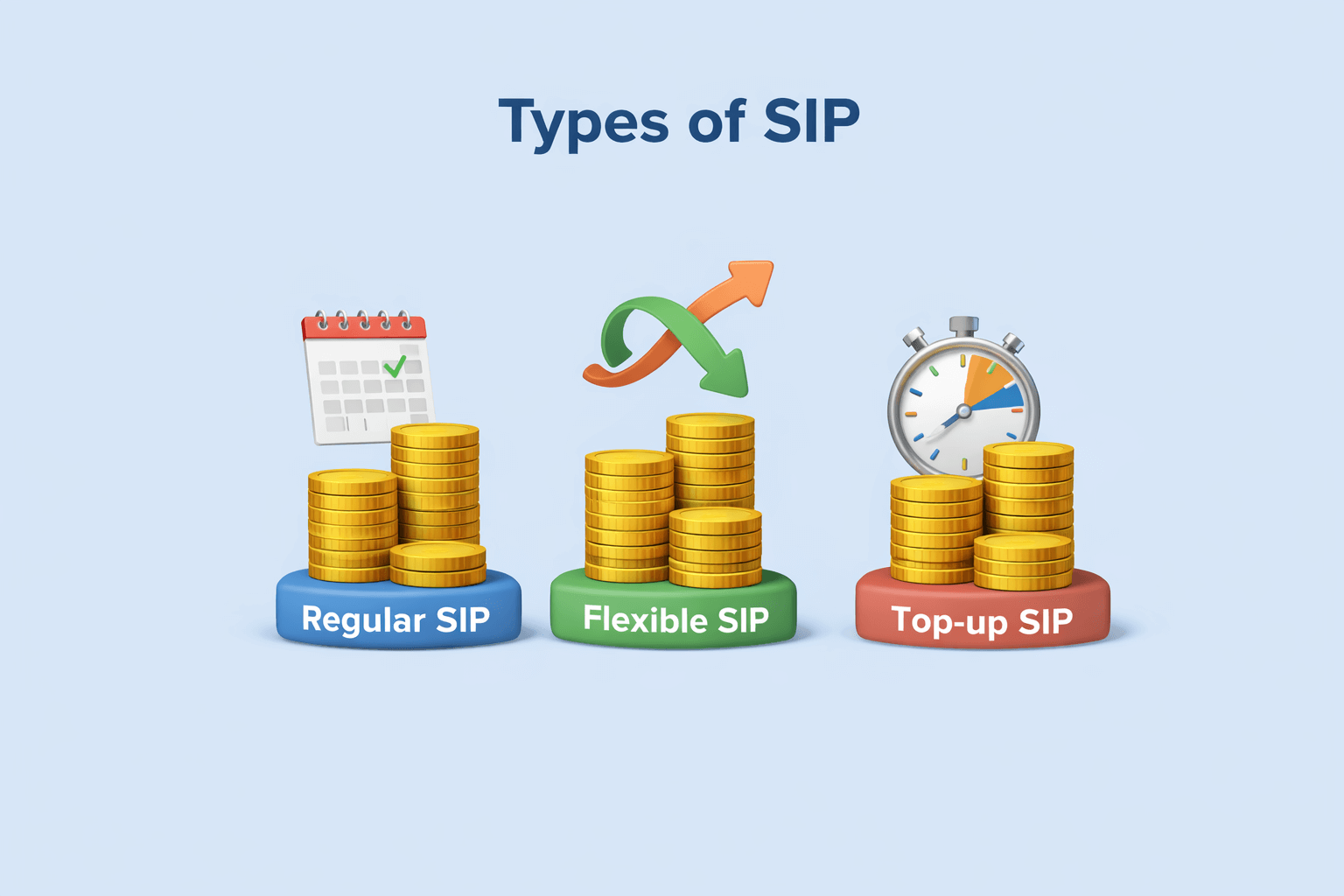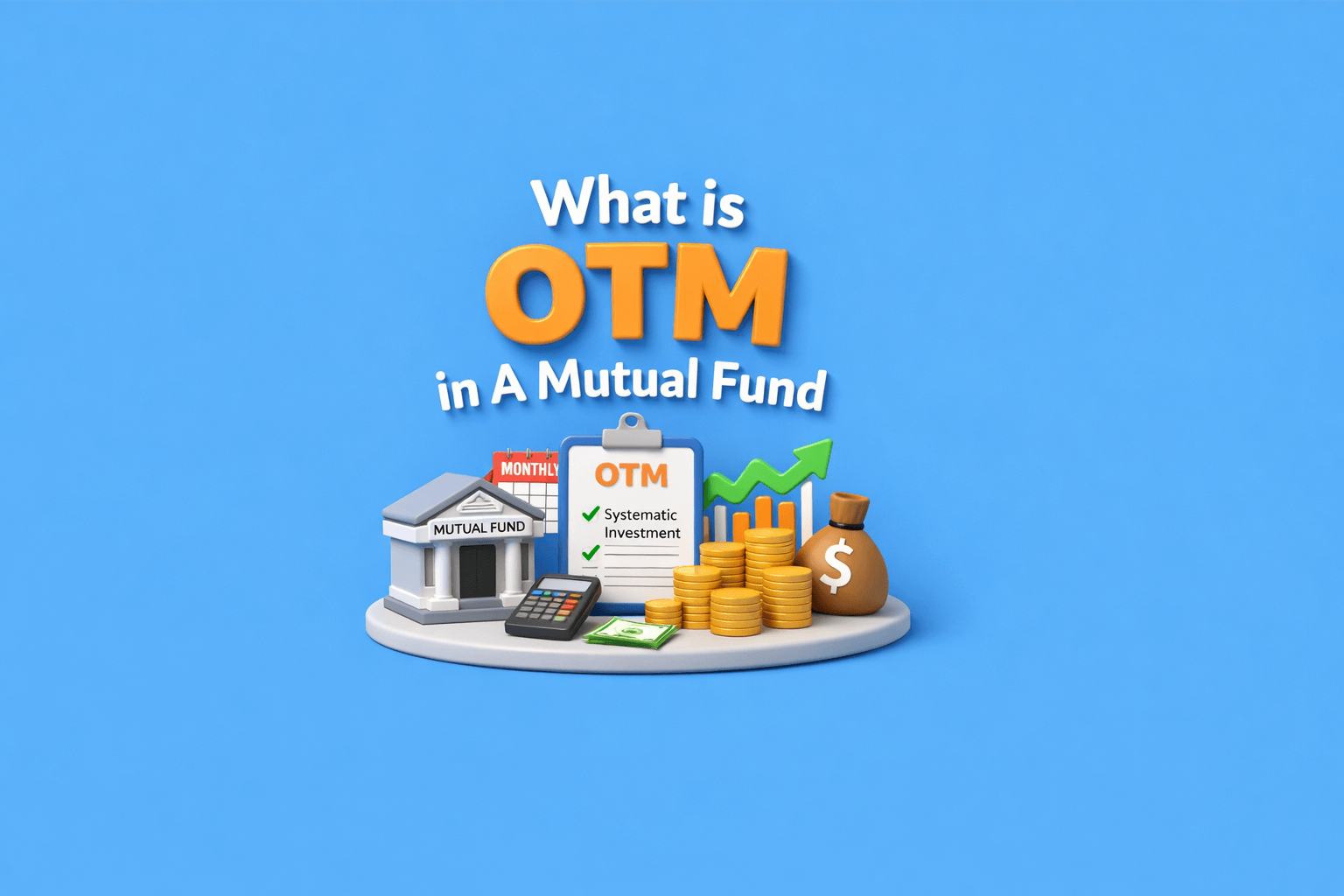- Home
- Blog
- Demat Account
- Short Term Capital Gain Tax on Shares
- Short Term Capital Gain Tax on Shares
Short Term Capital Gain Tax on Shares

- Published Date: June 22, 2023
- Updated Date: June 18, 2025
- By Team Choice
As a taxpayer in India, you must know that your business, salary, and rental income are taxable. But what about income earned from the purchase or sale of shares?
Many individuals spend their time buying and selling shares but are unsure about the tax levied on this income. This income, or capital gains are taxable as per the Income Tax Act 1961 provisions. Income is further divided into – short-term capital gains and long-term capital gains.
Stay with us as we take a detailed look at short term capital gain tax on shares.
What is Short Term Capital Gain Tax on Shares?
A profit acquired from selling capital assets held for a short-term period that is 36 months or less is referred to as short-term capital gain. The applicable tax on short-term capital gain is different for different assets. In the case of shares, the tax on short-term capital gain arises when a taxpayer sells shares within 24 or 12 months from the date of purchase.
Essentially, tax is levied on the net short-term capital gain on shares than on the sale value of the shares. Moreover, there is no tax liability if you have incurred a capital loss.
Furthermore, the tax on short term capital gain on shares falls under two heads:
The STCG Rate On Shares Under Section 111A
Under the Section 111A of the Income Tax Act, short-term capital gains are taxed at a rate of 15% on the transfer of the following shares that must be sold through a recognized stock exchange:
- Equity shares in a company
- A unit of a business trust
- A unit of an equity-oriented fund
The STCG Rate On Shares Not Covered Under Section 111A
The capital gains generated from shares that are not listed under any recognized stock exchange are not liable for taxation under Section 111A. These are, however, included in the investor's income during the filing of income tax and are charged as per the respective income tax slabs. Example of shares under this category includes:
- Profit on sale of shares that are not equity
- Profit on transfer of bonds, debentures, and government securities
- Profit on sale of debt-oriented mutual funds
- Gain on sale of non-equity assets
How to Calculate Short Term Capital Gain Tax on Shares?
To calculate short-term capital gain tax on shares in India, first, you must find out the amount of capital gain on selling shares. If the sale price of the shares exceeds its purchase price, the difference in the amount is the net profit or capital gain.
Check the table below to calculate short-term capital gain tax:
Step 1 | Total Value of Shares | |
Step 2 | Less | Acquisition or Purchase cost |
| Less | Expenses incurred during the sale (Brokerage Fee) |
Step 3 | = Short-term capital gain |
Deductions & Exemptions Under STCG Tax on Shares
Though the short-term capital gains on shares are not exempted from tax, the rule has certain exemptions. Individuals with specific income levels do not have to pay income tax on short-term capital gain on shares.
Below mentioned are a few cases of short-term capital gain tax on shares exemption:
- Resident individuals aged 80 years or above with an annual income of ₹5,00,000 lakhs.
- Resident individuals aged 60 years or above but below 80 years with an annual income of ₹3,00,000 lakhs.
- Resident individuals below 60 with an annual income of ₹2,50,000 lakhs.
- Hindu Undivided Families (HUF) with an annual income of ₹2,50,000 lakhs.
It is important to note here that only HUF and resident individuals have this advantage to modify their exemption limit against short-term capital gains that are part of Section 111A. They can further make such adjustments only when they have appropriately adjusted their other income.
Moving forward with deductions –
Under Section 80C of the Income Tax Act, no deductions are made available to individuals on their STCG tax on shares covered under Section 111A. However, individuals can claim STCG tax deductions on shares not listed under Section 111A.
How to Save Short Term Capital Gain Tax on Shares?
Although there is not much investors can do to save on their short term capital gain tax on shares, two possible ways are:
- Individuals can set off their short-term capital loss on shares against other long-term or short-term capital gains. Even so, one should be careful from going overboard with this tax-saving strategy.
- Individuals can carry forward their short-term losses as tax adjustments. However, they are permitted to do so for around eight financial years only.
Summing Up
Investing in shares is a prominent way for individuals to build wealth to meet their financial needs. However, the income earned from selling shares especially held over a short-term period, is referred to as short-term capital gains and are liable for taxation.
Under Section 111A, capital gains from selling equity shares, business trust funds, or equity-oriented funds are taxed at 15%. So, before buying or selling shares under the short-term category, be well aware of the STCG tax and provisions to not fall on the short end of the stick.
FAQs
How much of short-term capital gain is tax-free?
All short-term capital gains on shares under Section 111A are taxed at a rate of 15%. At the same time, other short-term capital gains on selling shares not under Section 111A are taxed based on the investor's income tax bracket rates.
Can short-term capital gains be exempted?
Individuals who want to claim exemptions or deductions on short-term capital gains can do so under Income Tax Act Section 80C to 80U, providing short-term capital gain does not fall under Section 111A.
Is it possible to set off short-term capital loss against any other income head?
It is possible to set off capital losses against capital gains only. On that ground, in the event of short-term capital loss, the set-off can only be made against long-term or short-term capital gains.
Recommended for you

Types of SIP: A Complete Guide For Indian Investors

Stock Market Books To Read In 2026

What is OTM in A Mutual Fund
